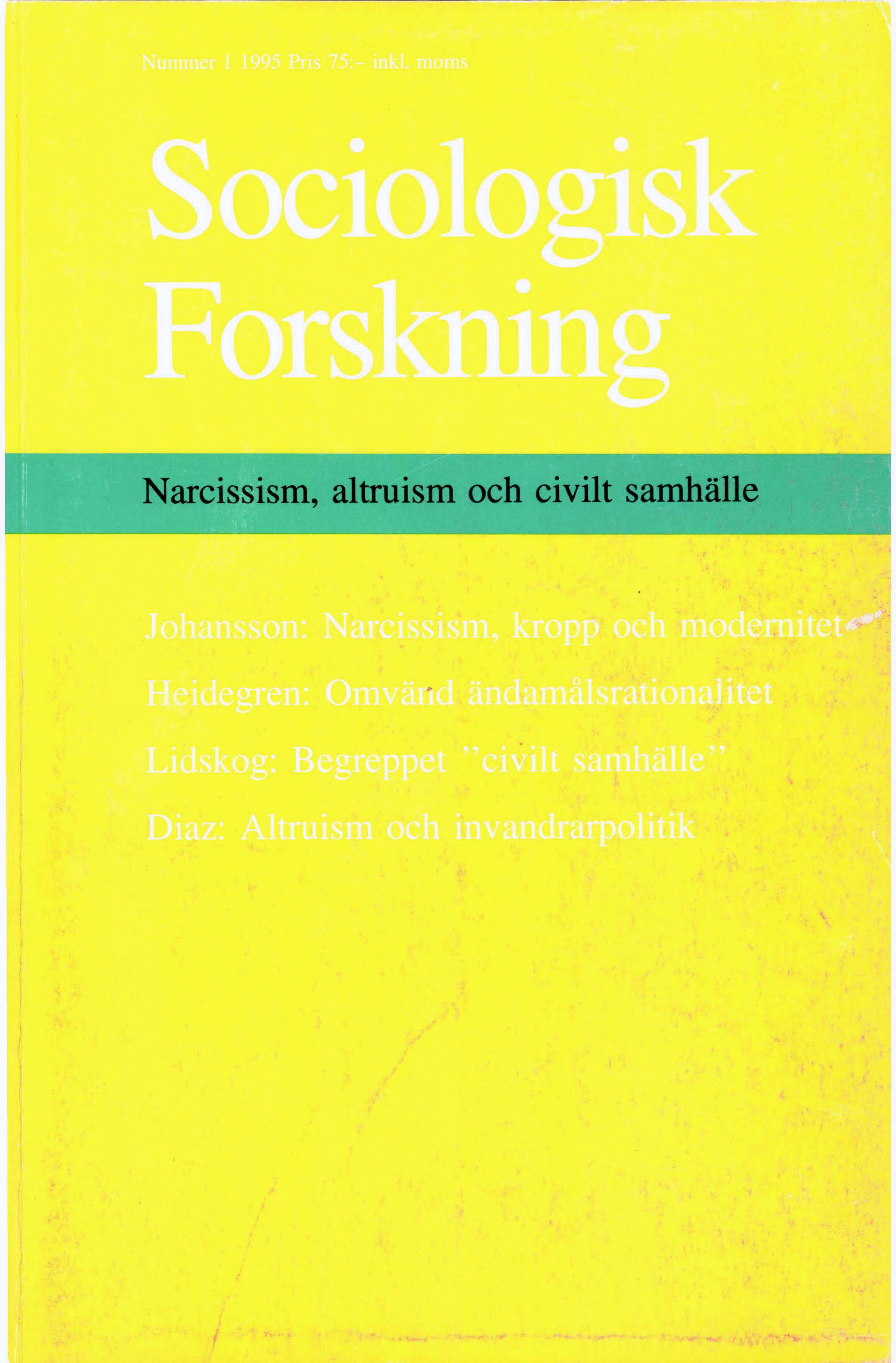”Flyktingvännerna” - altruism, attitydkonsistens och sociala profil
DOI:
https://doi.org/10.37062/sf.32.18580Abstract
Friends of refugees - On refugee altruism, attitude inconsistency and sociological derminants
This article presents an analysis of attitudes towards immigrants within the Swedish population based on a national representative sample of 1030 people (originally collected by the Swedish Institute for Opinion Research, SIFO, in 1993). The analysis focuses on sociological dimensions and profiles on the category of people who are generally positive towards refugees and immigrants. This is tentatively defines here as ”refugee alturism”. Frequencies of the two survey items used to operationalize this term show that its social dimensionis quite limited. The analysis reports several manifestations of ”attitude inconsistency” within this category, for instance 1) many people who would like Sweden to take in more immigrants demand at the same tame that the immigration rules should be more restrictive, or do not believe that immigrations entails benefits for the country; 2) people who believe that immigration implies benefits for the country want more restrictive immigration rules. Another unexpected finding concerns the low level of social interaction between refugee-altruistic Swedes and immigrants. Many respondents who answer that immigration is good for the country, or who want Sweden to let in more foreigners do not interact themselves much with foreigners. Finally, a multivariate analysis tests the relevance of three sets of explanatory variables. Gender, age and ethnicity show a weak single impact on attitudes when all the effects are controlled. Variables such as education, white-collar position and employment in the public sector, as well as social resources (people who have partners and children) are important in predicting positive attitudes towards immigrants.
Downloads
Published
How to Cite
Issue
Section
License
All content in Sociologisk Forskning is published with immediate open access, under the Creative Commons license CC BY-NC-ND 4.0.
All content may be read, downloaded, shared and printed for non-commercial purposes, free and without fees. Contents may not be altered. When content is reused, author, source and a link to the copyright licence must be provided. The author retains copyright to their content. No publication fees are charged.





